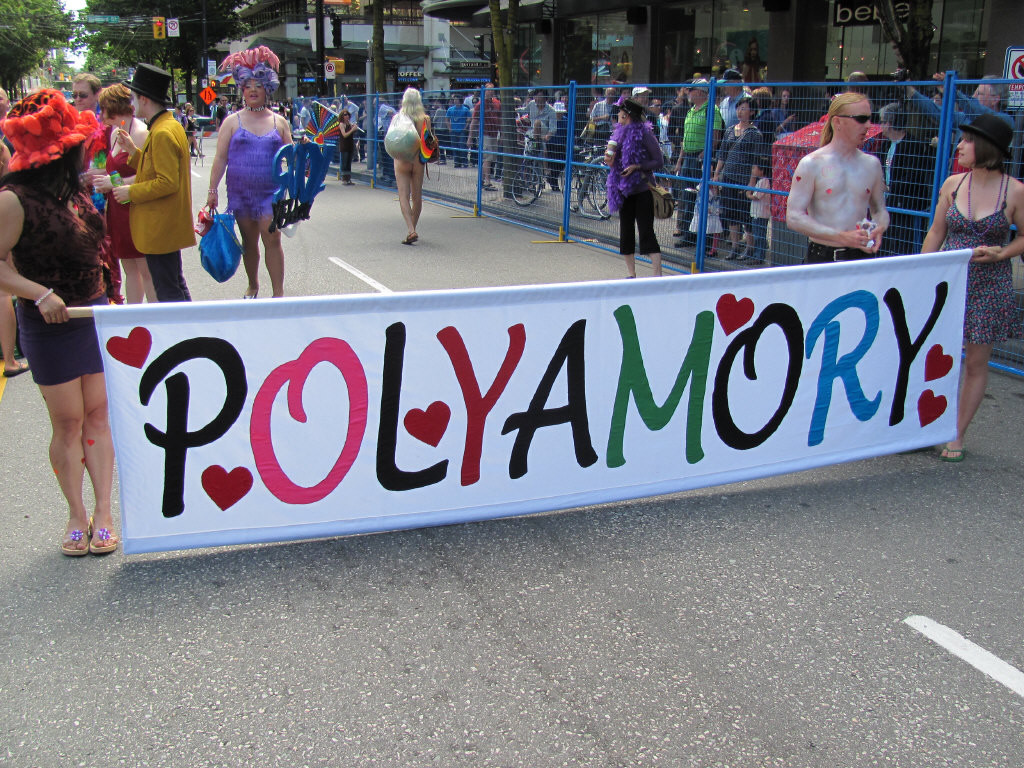Many loves
Etching out guidelines for polyamory
As the exploration of relationships and their dynamics become increasingly open and intricate, we see more conversations about polyamory, a form of non-monogamy.
Anlina Sheng, founding organizer of PolyWinnipeg, says polyamory negates the necessity to restrict relationships based on gender or structure.
“Historically, polyamory has been an egalitarian movement,” Sheng says. “There is huge diversity of polyamorous relationship structures and dynamics.”
Sheng explain how polyamory is viewed as a sexual orientation for some and a behaviour for others. This is one of many reasons why we see the development of maps for non-monogamy.
Exploring the many routes of non-monogamy whilst trying to navigate a society that privileges monogamous relationships over other types is a challenge, Sheng says.
Other challenges include dealing with stigma and assumptions about sexuality or relationships, finding partners, lack of role models and – although there are maps being made – you have to figure out your individual mapping for how to make relationships work.
Polyamory community member Jaz, who did not want to be identified by their full name, agrees.
“There are so few role models of non-monogamous relationships, that it’s really hard to try to figure out what works for you, and what works for you and your partner,” Jaz says.
For Jaz, this challenge extends to family.
“It’s not something I talk to my family about. If I’m dating multiple people, I need to choose which one is the one that I tell my parents about,” Jaz says. “How do you choose?”
Jaz says polyamory is often depicted as cheating, which is non-consensual poly.
“It really plays into a culture of fear and insecurity,” Jaz says.
Jaz says there is a lot of unlearning and relearning about how to do relationships and how to nurture love.
Jaz’s learning curve began in high school.
Jaz says, for them, there’s never been a clear understanding of what standard, monogamous relationship expectations look like; and polyamory was like a moment of clarity.
“Whenever it happened that I heard of polyamory, it kind of clicked like, ‘Oh, maybe this is why I’ve been so unsuccessful at relationships, I’ve been doing the wrong style of relationship,’” Jaz says.
Jaz puts much care and thought into their personal practice of polyamory, saying it requires a lot of self-exploration, honesty and vulnerability.
This journey is one that seeks support and collaboration in efforts to better shape the reaches and endless relationship possibilities of polyamory.
PolyTalk helps with this.
It is a facilitated, round-table discussion group hosted by PolyWinnipeg that discusses polyamory issues, theory, experiences, culture and whatever else group members who show up have on their minds.
Sheng says Winnipeg’s polyamory community has done their best to cultivate a safe space without "missing stairs" to explore polyamory by reworking normative conventions about speaking up.
“I love the community that we've built in Winnipeg. It's one of the more diverse polyamorous communities that I'm aware of,” Sheng says. “We've worked really hard to establish a culture that is sex positive, anti-oppressive, accountable and transparent.”
Sheng says this community has had success establishing this environment.
“Rather than focusing on dating and hookups, it focused on networking and sharing experiences and info, and I think that's helped to establish an environment that's safe and welcoming,” Sheng says.
Published in Volume 70, Number 20 of The Uniter (February 18, 2016)






